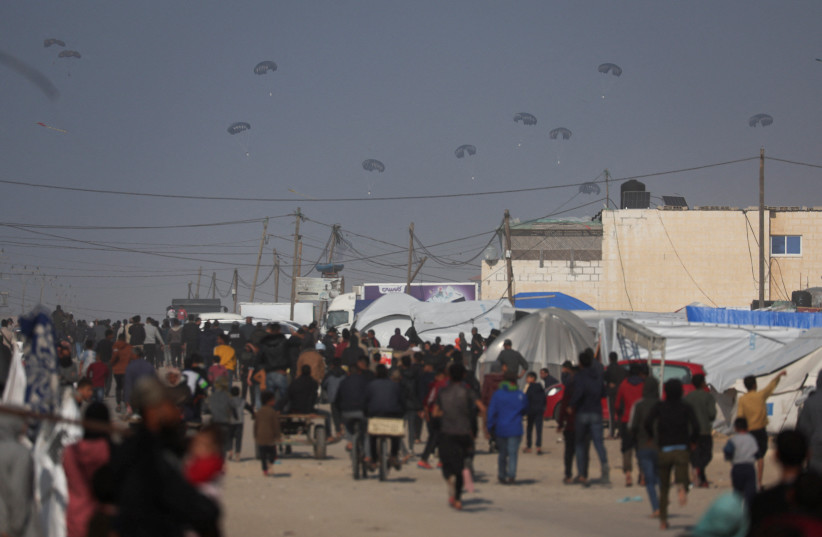The IDF’s just campaign to destroy Hamas in Gaza does not justify the Palestinian suffering due to that war, German Chancellor Olaf Scholz said as he urged Israel to refrain from a military operation in Rafah.
“No matter how important the goal, can it justify such high costs or are there other ways to achieve your goal?” he asked during a joint press conference with Prime Minister Benjamin Netanyahu.
Germany has been one of Israel's top allies amid its war with Hamas
Germany has been one of Israel’s staunch allies in its war against Hamas.
In a manner akin to the Biden administration, Scholz has a stern message for Netanyahu about the IDF’s conduct during the war, particularly its failure to ensure the distribution of aid, which has led to a hunger crisis in Gaza.
“We cannot stand by and watch Palestinians risk starvation. That’s not us; that is not what we stand for together. Much more humanitarian aid is needed continuously, reliably,” Scholz said.
“The provision of aid from Israel into Gaza and the conditions for distribution into Gaza must be urgently and massively improved,” he stressed.
Germany this week became one of the growing list of countries to airdrop food supplies into the enclave.

Scholz said that the memory of the more than 1,200 people killed in the Hamas-led attack against Israel on October 7 would not be forgotten as he called for the release of the remaining 134 hostages.
“From day one our message has been clear. Israel has the right to defend itself against the terror of Hamas and all hostages must be released. This cruel crime must end now.”
The German chancellor cautioned, however, that the IDF military operation had been going on for over five months and that the cost was “extremely high” – many would argue “much too high.”
The goal to destroy Hamas is a legitimate one, he said, but the longer the war lasts and the more desperate the situation of the people in Gaza, the more one has to ask if it’s worth the price.
“Take the ground offensive in Rafah: The military logic is one consideration, but there is a humanitarian logic as well,” he said.
“How should more than 1.5 million people be protected? Where should they go?” he asked, as he appeared to cast doubt on Netanyahu’s assurances that the plan for any Rafah operation would include one to allow for the evacuation of civilians in the southern city near the Egyptian border.
Scholz also seemed to urge Israel to show more flexibility in its handling of the negotiations with Hamas for an agreement to secure the release of the remaining 134 hostages in Gaza.
“We need a hostage deal with a longer-lasting ceasefire,” he said. “I know how difficult it is to reach an agreement with Hamas terrorists. But we understand the hostage families who say that after more than five months, the time has come for a comprehensive hostage deal for saving those who are still held captive.”
The German leader underscored that Israel’s security was essential and was at the center of “all my efforts and thoughts here.
“Terror against Israel must be fought consistently. But terror cannot be defeated with military means alone,” he said as he called both for a two-state resolution to the conflict and a larger normalization deal with the Jewish state’s neighbors, primarily Saudi Arabia.
“Palestinian statehood can and must be designed to meet Israel’s security needs: There is no contradiction here,” he said.
“Lasting security for future generations of Israeli people lies in a solution with the Palestinians, not against them. And in the end, this means a negotiated two-state solution,” Scholz said.
“This also includes the normalization of Israel’s relations with its neighbors, especially with Saudi Arabia.”
Netanyahu assured Scholz that Israelis yearn for peace because the “cost of war is well known to us.”
“We believe that the key to peace is security. Many believed that the key to security is peace. But peace is unsustainable without a strong Israel,” the prime minister said.
“And if we offered a peace agreement or a path to peace that makes Israel so weak and unable to defend itself and [leaving] our neighbors still adhering to the goal of destroying the Jewish state,” Netanyahu said, “then obviously, we will set peace backward and not forward.”
